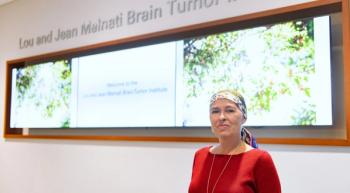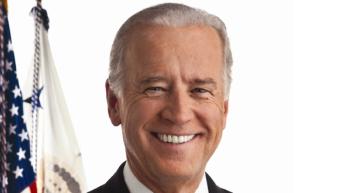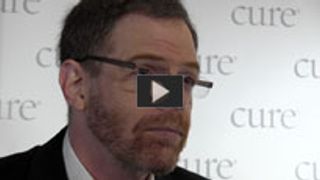
Brain Cancer
Latest News
Latest Videos
More News

From a skin cancer survivor raising money for the fight against the novel coronavirus to a Cleveland Browns fan who has survived a rare brain tumor helping to open the broadcast of Thursday’s NFL Draft, here’s what is making headlines in the cancer space this week.

Going in for an infusion amid the coronavirus pandemic with a possible "symptom" of COVID-19 and wondering what risks lie ahead.

At the best of times, cancer is a difficult burden to bear, but in the midst of a pandemic, it's especially worse. But patients with cancer know the way out is by going through.

One survivor offers her suggestions to handle chemo brain as she copes with her almost-10-year-old chemo brain.

With the start of a new decade, a brain cancer patient discovers what may be the most courageous way to move forward in his life.

From a weight loss drug’s possible cancer risk to a shocking cancer revelation in the death of ESPN reporter Edward Aschoff, here’s what is making headlines in the cancer space this week.

New findings show that Ibrance has the potential to help patients with brain metastases that harbor a CDK pathway alteration.

From a bill that would improve access to care for patients with stage 4 cancer to the death of Roxette lead singer Marie Fredrikksson, here’s what is making headlines in the cancer space this week.

Friends would often ask me why I was doing all this running and biking. I had no answer for them. Now, looking back, I know that God was preparing me for the biggest race of my life: my cancer journey!

While scientists have a limited understanding of how brain metastases genetically evolve from their primary tumor, research presented at the Society for Neuro-Oncology’s Annual Meeting may have identified a connection between genetic mutations and treatment options that could offer patients improved outcomes.

Researchers developed SurVaxM to help stimulate an immune response in patients with glioblastoma.

"I’m trying to turn my season of yes into a season of consideration. A season in which I weigh what I can do, with what I’d like to do, and with a radical honesty with my community around what that means and what a low-impact, beautiful, accepting, good life looks like. I hope that season lasts for a long time."

After receiving a diagnosis of medulloblastoma at age 11, one woman has lived decades with the disease as her uninvited companion. Now, she writes, speaks and advocates for others facing cancer.

Here is a list of the recent trial initiations that occurred within the cancer space in October.

“Lasting Love” shares a moving and constructive message that may help support youngsters as they navigate a deep loss.

From a chemotherapy drug shortage to Eddie Van Halen revealing a cancer diagnosis, here’s what is making headlines in the cancer space this week.

After receiving a stage 4 brain cancer diagnosis, a young mother traveled from Mexico to Chicago for treatment.

Here’s a look at what’s inside our 2019 Rare Cancers special issue.

In this episode of the “CURE Talks Cancer” podcast, we spoke with Matt Newman, who was diagnosed with brain cancer at 39, but refuses to let cancer define the legacy he has made.

At free NCI clinics, people with some of the rarest disease get tumor analysis, counseling and expert advice.


After two years, the Biden Cancer Initiative has shuttered as former Vice President Joe Biden’s presidential campaign begins in earnest.

Long-term survivors of pediatric neuroblastoma may be at an increased risk for neurocognitive impairment – in particular, due to age at diagnosis and the type of treatment received.

The FDA has approved Zirabev, a biosimilar to Avastin, for the treatment of five types of cancer: colorectal cancer; non-small cell lung cancer; glioblastoma; metastatic renal cell carcinoma; and persistent, recurrent or metastatic cervical cancer.

Don’t let a terminal diagnosis get you down to the point where you stop living your life. Have an adventure, buy the shoes and eat the cake.




